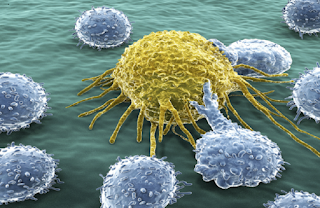Scientists from the University of Rochester have discovered that the structural properties of collagen may influence the risk of cancer metastasis and partly explain why treatment outcomes vary among patients of different ethnicities.
The researchers focused on two types of malignant tumors: invasive ductal breast cancer and early-stage colon adenocarcinoma, using a visualization method called second harmonic generation (SHG), which allows for analysis of the structure of collagen fibers (a major protein in connective tissue) in tumor tissue, according to the journal Biophotonics Discovery. Their study included more than 300 samples.
The researchers paid particular attention to two indicators: the F/B ratio (the direction of light scattering by collagen fibers) and fiber angle variability (FAV). FAV reflects the degree of randomness or regularity of collagen fiber orientation in a tissue, which helps assess the suitability of the structure for cancer cell proliferation.
The analysis showed that the F/B value at the tumor-surrounding tissue border was lower in Black breast cancer patients than in White patients. This characteristic of collagen structure has previously been associated with a higher risk of cancer cells spreading. In colon cancer, the F/B value was higher in Black colon cancer patients, and this was also associated with more aggressive tumor behavior.
According to the researchers, another index—FAV—did not differ between ethnic groups, suggesting that not all collagen properties are susceptible to such biological differences. The researchers' data highlight the importance of considering biological factors associated with ethnicity when predicting disease course and selecting treatment.


